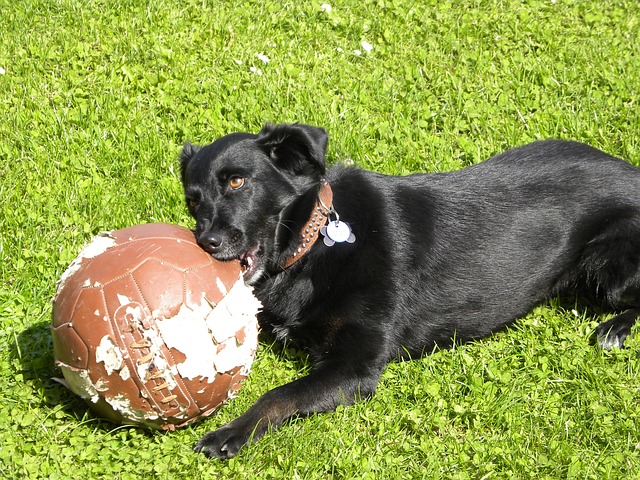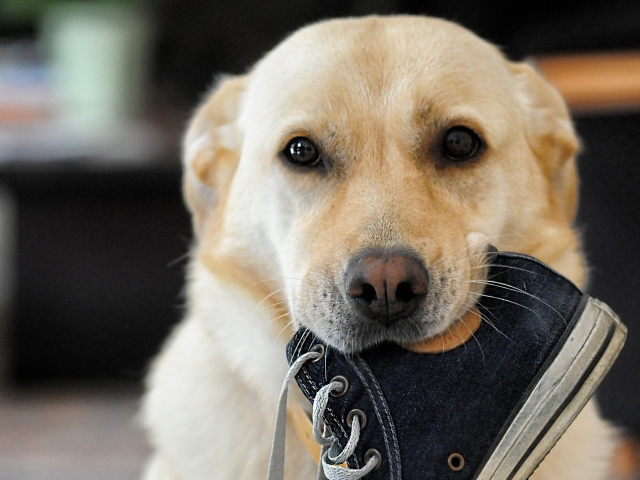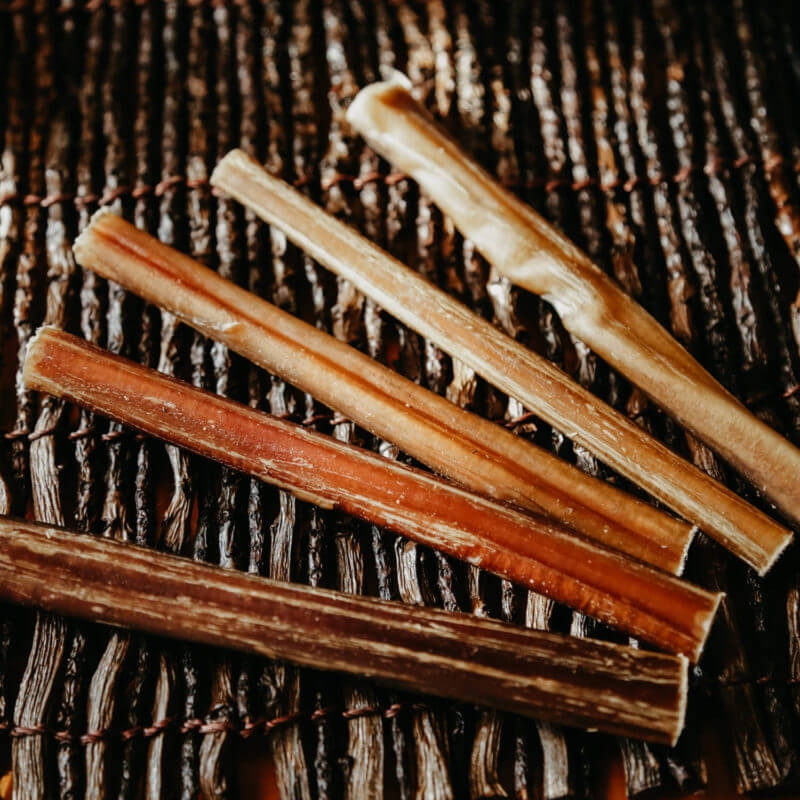Chewing is an important part of a dog’s life – it keeps their teeth healthy, it’s fun for them, and it’s a big part of how they explore their environment. But there’s “good” chewing and then there’s “bad” chewing, which can involve things like shoes, wires, furniture, even walls.
Your dog is going to need to chew, but it’s up to you to teach him the difference between the good and the bad, for his health, safety, and your relationship. It’s better to get started young before bad habits develop, but don’t believe that your older dog can’t break his bad habits!

1. Buy Toys for YOUR Dog
If you’re going to stop him from chewing the objects you want to keep unchewed, make sure you provide things that are just for him to chew, and appropriate for him. A power chewer needs tough toys, and will tear flimsy toys into tiny, easy to swallow bits. Your big dog is going to need appropriately-sized toys that won’t go down his throat, and your small dog will need something that fits into his mouth. Make sure the toys you buy are right for YOUR dog and are things he enjoys. When you give him chewing alternatives that he likes to play with, he’s less likely to get into your stuff.

2. Protect Your Stuff
Help your dog make good decisions by putting things that aren’t meant to be chewed away. It may take time to eliminate everything – dogs can get pretty creative when they chew – but it’s easy to do things like put shoes behind closed doors or tuck wire behind furniture.
Of course there will be things that can’t be moved, like furniture or walls. Don’t underestimate your dog – he’s smart, and he wants to make you happy. You don’t have to shout, and NEVER hit your dog, but when you see him with something he shouldn’t have in his mouth, take it away and offer something of his that is meant to be chewed. If you see him making good choices, reward him! He may not get it the first time, but if you stay consistent, he’ll get the picture.
Bully sticks make for a great reward AND chewing substitute.

3. Avoid Boredom Chewing
An under stimulated dog can act out in destructive ways like digging or chewing. Just spending a little time with you can curb unwanted behavior. Play with your dog, go for a walk, teach a new trick (“drop it” can be good if your dog is chewing your stuff.) He won’t be getting into your Blu-ray collection or laundry basket while he’s playing with you, and keeping his body and mind active can curb a lot of his bad habits.
Spending this time with your dog can also strengthen your bond, and make it easier for him to tell when you’re unhappy with his chewing choices.
4. Consider Other Reasons For His Chewing
Some dogs suffer from fear, or separation anxiety. During these times they’ll do things like tear up your house in a panic. In cases like these, bad chewing is less of a choice and more of a symptom of an underlying cause that needs to be addressed. (Check out our articles on 6 Signs Your Dog Is Living With Fear and Your Dog And Separation Anxiety: What You Can Do To Help.)
Set your dog up for success and teach him good habits, and your stuff should be safe from your dog.
H/T: humanesociety.org
